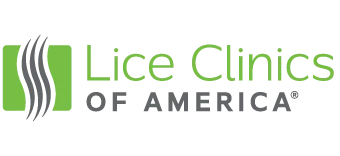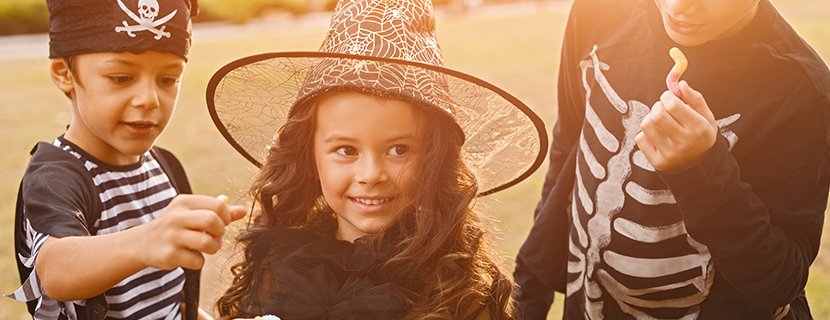Post-Halloween Head Lice
Now that Halloween has passed, be careful—your child may have taken home more than just candy.
As the year-end holiday season begins and friends and family gather together more frequently, the chance for catching head lice increases. Halloween is no exception: young children spending time together dressing up, trick-or-treating, and sharing candy creates the perfect opportunity for lice to find new hosts. Get to know the potential ways your child may have been exposed to head lice, and what actions you can take to ensure that they’re lice-free.
(Don’t) Put Your Heads Together
The primary method of head lice transmission is direct head-to-head contact between someone who’s infested and someone who isn’t. This most often takes place when people sit side by side, exchange hugs, and take photos. And for a night full of posed pictures with everyone in costume, that’s a big risk! Squishing into frame together for a selfie may result in a cute photo, but the consequence of catching head lice may turn it into a not-so-cute memory.
“Photos are one of the most common ways we see our clients get infested,” says Shannon Steele, owner of Lice Clinics of America – Jonesboro. “They’ll come in saying ‘I have no idea how we got lice’, and we’ll ask ‘have you been visiting friends or family, taking photos where you’re leaning heads together?’ And that’s when a light dawns on them and they realize they have been, and that’s how they got infested.”
Sharing Isn’t Always Caring
While head-to-head contact is the most common way that head lice spread, there is also a risk of infestation from sharing hats and head coverings. Halloween festivities amplify this risk due to the many hats, wigs, headpieces, and costume masks that kids wear and take turns trying on. If a louse happens to take an unexpected ride on a hat or a wig that’s passed from one child to another, it can easily start a new case of head lice. The same is true for hairbrushes and combs that are used on more than one child as parents help kids style their hair for their costumes.
Checking for Head Lice
Even if you feel confident that their friends or family members haven’t passed it on to them, it’s always worthwhile to check your kids for lice. Before you head-check, make sure you know what to look for. An adult louse is only as big as a sesame seed, and their much-smaller eggs blend in very easily to the hair shafts they’re attached to. A magnifying glass may help you more accurately identify what you see. Check the hair at the back of the neck, behind the ears, and around the hairline for nits; check random areas of the scalp to try and spot hatched lice. A lice comb will remove any nits in the hair that you may find.
“Head lice is very often misdiagnosed,” says Shannon. “Especially because people don’t really know the facts. They’ll schedule a treatment when they don’t have anything other than itchiness, or they’re convinced they’ve seen lice eggs in their child’s hair when it’s actually just dandruff. And that’s where we come in, to head check and treat but also to help educate.”
Whether there’s a new case of head lice in your family or you just want everyone in your household checked for peace of mind, Lice Clinics of America is here to help. Our professionally trained staff are equipped to diagnose active infestations of lice during head checks, as well as perform thorough treatments using the patented AirAllé device. The AirAllé uses concentrated heated air to kill over 99% of bugs and eggs in just one hour. No matter your family’s situation, we are determined to help you remain lice-free.
About Lice Clinics of America
Lice Clinics of America has successfully treated more than 950,000 cases of head lice. The company has more than 265 clinics in 20 countries, making it the world’s largest network of professional lice treatment centers. Lice Clinics of America – Jonesboro is located at 3114 Fox Road, Suite D, Jonesboro, AR 72404 and is open 7 days a week by appointment. Call 870-322-6056 or visit www.LiceClinicsJonesboro.com for more information or to schedule an appointment.










